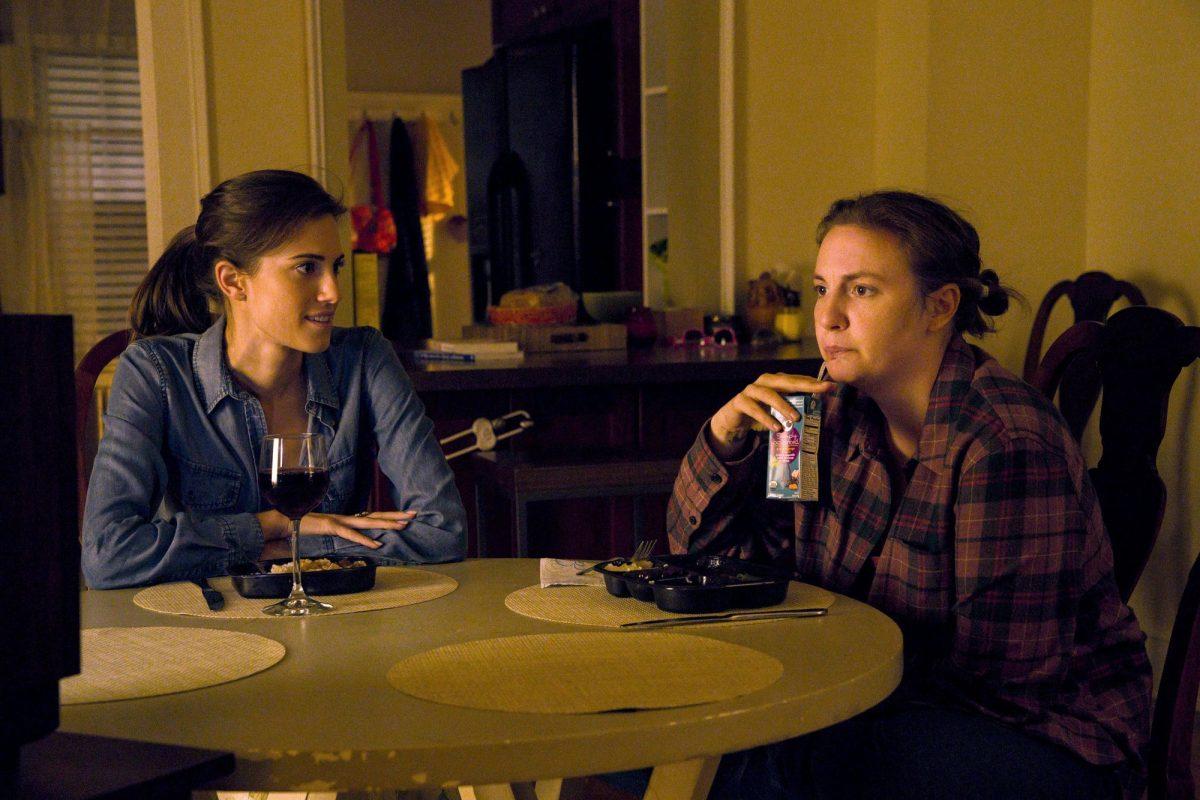“Girls” tells the story of four young women, each navigating her own path in New York City, amidst the storm of drama that they have crafted for themselves. Our main protagonist, Hannah Horvath (Lena Dunham), isn’t likeable — she’s melodramatic, self-absorbed and has a specific knack for always saying the wrong thing at the wrong time. The rest of the characters are equally unlikeable: Marnie (Allison Williams) can’t manage her love life, Jessa (Jemima Kirke) is childish and bails on commitment and Shoshanna (Zosia Mamet) is simply annoying. Although we follow these untraditional characters, Dunham uses them as a mirror to show us how we ourselves have these undesirable traits.
Leading up to the finale, our characters and their equally dramatic male love interests have yet to ‘grow up.’ Hannah’s ex-boyfriend Adam (Adam Driver) is still unsure of his feelings for Hannah, Marnie’s ex-boyfriend Ray (Alex Karpovsky) lets Marnie emotionally abuse him and Hannah’s roommate Elijah (Andrew Rannells) can’t let go of his younger years. Even while technically moving up the ladder, our characters still seem to have a disregard for the consequences of their actions. Marnie’s musical career buds and modestly flourishes but her relationship and eventual marriage with Desi is extremely dysfunctional. Marnie divorces him, but still continues to sleep with him after entering another relationship with one of her exes, Ray. In season six it is revealed that Desi is a severe oxycontin addict, which Marnie cannot come to terms with because she would have to acknowledge her fault in not realizing the signs and her reluctance to help someone she cares about. Marnie’s fall from grace is the best orchestrated character development in the series. Marnie was the most likeable character at the beginning of the series. She had a job and a stable relationship and helped out her less fortunate friends. Soon enough, Marnie becomes what she formerly chided: a childish narcissist.
The other characters have different trajectories: Hannah slowly but surely improves herself, Jessa continues to lose the people around her as a result of her childish behavior and Shoshanna has periods of betterment followed by stagnation. Each character represents different paths that one could take to find herself in her twenties. Although each character has their own fatal flaw that hinders their development, they are all working towards coming into their own. Dunham quite elaborately shows that when you don’t know or have your purpose, you are wandering, lost like a child. Dunham also shows that it might take a while to find yourself but eventually it all works out, for better or worse.
“Girls” still has its numerous flaws. There are practically no people of color in the entire show and the characters are obnoxiously privileged and able to afford an ostentatious New York lifestyle with little to no employment. That aside, Lena Dunham fleshes out her specific niche well and her work encourages others to do the same. “Girls” set the template for shows such as “Insecure,” another HBO show which follows the chronicles of a Black twenty-something woman. “Girls” is problematic for these reasons, but it shouldn’t take away from the lessons Dunham is trying to portray. The show can also be quite empowering in its focus on long-lasting female friendships. While the men and relationships come and go, the four girls remain committed to each other through the drama.
The final season takes hold of this idea, reminding people how important non-romantic relationships are. “Girls” presents an era of each characters’ lives defined not only by themselves, but the company they kept. While the final season forces our characters onto different trajectories, they hold steadfast to the importance of their relationships. Hopefully “Girls” will be examined without the usual criticism it draws. It’s an entertaining show with intriguing drama. The messes that the girls get themselves in are hilariously over-the-top and helps us feel better about ourselves. “Girls” is an ode to women and their friendships, and reminds us that life isn’t a straight path but a series of trajectories. Dunham cements this thought in the last episode in which Hannah’s longtime friend Marnie is there to help her start her new life, but eventually must back off so that the women can still appreciate each other with more established boundaries. Hannah and Marnie are best friends throughout the drama, but they can each follow and appreciate their own individual life paths.







